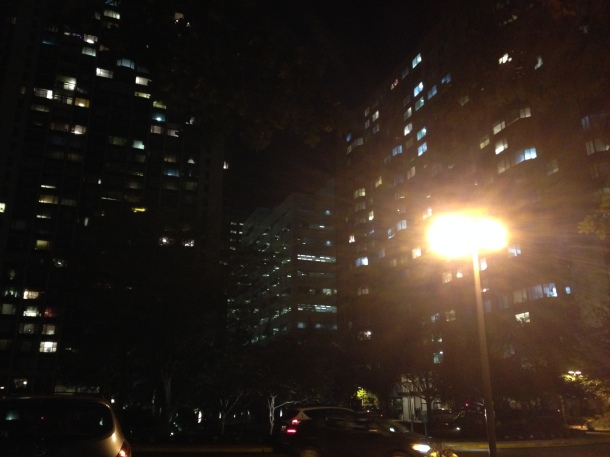Flushing, Queens, has three bookstores and one library. Newport, Jersey City, has none. The difference between the two immigrant communities is that knowledge lies in different places.
Asians dominate both places, but the former is more a blue collar population and the latter a financial workers’ district. For the white-collared, knowledge lies in degrees, minds and the online world. The Flushing scene resembles the developing world, where print newspapers and books still have a role, even a growing one.
In Newport, I do see more copies of the Wall Street Journal on doorsteps, but news does not match the mental need for books which offer travels in a fictional world or ideas presented without dry statements such as “Apple declined to comment.” The lack of books is why Newport is an ephemeral world and explains why, when I first moved here, I felt that the whole place, Hoboken included, was a farce, a movie set waiting for something to happen. For here everyone is on the move, with school, work, and life. Many come from other countries, stay for a few months or a year, and leave. All live in towers not knowing anyone or anything, and most of what we live off of comes from the great city across the river. Newport is almost like a parasite, even though as an urban studies major I commend the town planners’ efforts to create a community with the layout and use of the public spaces. Maybe the sense of displacement I feel in Newport pushes books away so that the mind gravitates to the ever moving, social connectivity of the Internet. But what really is moving on the Internet does not stick and tends towards vacuousness, or the modern trend of valuing experiences over objects. It is a fleeting Snapchat, a status update that falls down a Twitter or Facebook feed. I find myself unable to calm my mind because there is no environment for it, and the steadiness of the printed page is so removed.
The search for books in Newport is discouraging. Across the river, printed matter is on the decline in Manhattan, beginning from the west side. Although a few independent bookstores remain (and, thankfully, appear to thrive) in the West Village, Barnes and Nobles has closed its 6th Avenue location and Borders left Penn Station long ago. Further east, The New York Times reports that Posman books will close in Grand Central Terminal, not because sales are necessarily falling but because construction will cut right through the store. My only hope is The Strand, or Amazon. But those cost money I don’t always have.
Limited public library hours deepens the void of all these closures. Trapped in the 9-to-5 weekday schedule, I can barely make it to any branch during opening times. Moreover, most of the books I want to read seem to be “for reference only,” meaning I need a good two or three hours in the library to read them. The closures and the limited hours create a lack of books in my world that hurts inside. For not only do I want to dive into a book to experience another world, but so many times have I wandered into libraries and bookstores, on sunny days to be revived, and on rainy days to feel at peace.
Loss and hurt turn into an insatiable hunger that not even music or a good movie can fill. I’ve held out against e-books because the printed page is a respite from the screens that I constantly face. But I want books so badly that I have finally given in to reading e-books with Amazon’s Kindle unlimited service. The Financial Times‘ book of the year, Capital in the Twenty-First Century, still has 50 names on the waitlist ahead of me at the New York Public Library, and my mind can’t stand that long to catch up with what the media have been discussing recently. Instant gratification of a downloadable e-book comes with a free trial of the $9.99 a month service from Kindle unlimited, not to mention an audio book. Oyster and other startups offer similar options, but perhaps the unfamiliar brands make me hesitant to choose them over Amazon. Still, their existence show that the very factors of digitalization that have driven printed books from me have also brought books so much closer with the immediate delivery of Thomas Piketty’s work.
Thank God for Amazon, thank God for The Strand, thank God for the private library at work and for friends who lend me books. For then I can sit with something physical and permanent that can bring my mind to rest.

